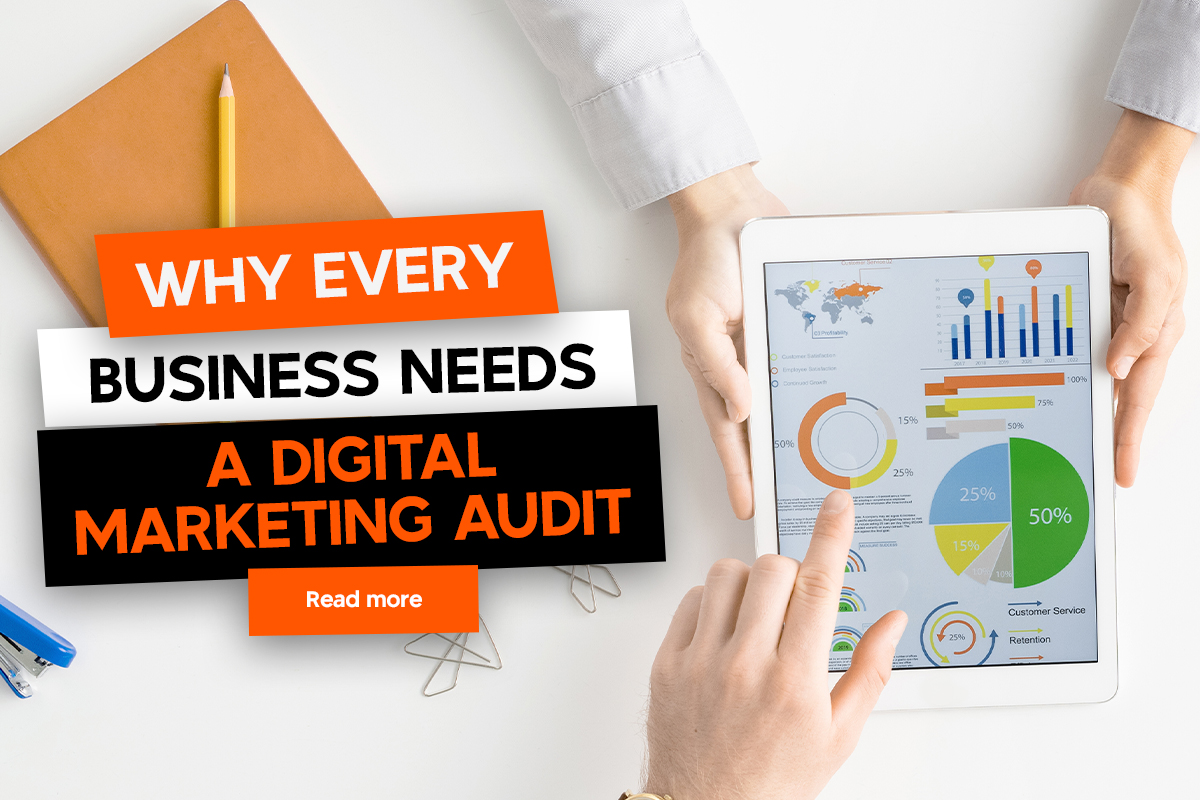
Why Every Business Needs a Digital Marketing Audit
In today’s digital age, every business relies on an online presence to connect with customers, build brand awareness, and drive sales.
But when was the last time you took a close look at how well your digital marketing efforts are really performing? This is where a digital marketing audit comes in.
Think of it as a health checkup for your online strategy. Just as you wouldn’t skip your annual physical, your business can’t afford to neglect a regular audit of its digital marketing tactics.
Website Analysis: Checking for SEO and UX Issues
A thorough website analysis is like a digital health check for your online presence. It helps you identify potential issues that could be holding your site back in terms of SEO and user experience (UX).
In the world of digital marketing, having a well-optimized, user-friendly website is crucial to your success. You wouldn’t want your hard work to go unnoticed just because of a few overlooked issues, right?
Let’s break down why analyzing your website for SEO and UX is essential and how it can significantly impact your digital marketing efforts.
The Importance of SEO in Website Analysis
SEO, or search engine optimization, is the backbone of any digital marketing strategy. When your website is properly optimized for search engines, it’s more likely to appear in search results, driving organic traffic to your site.
During a website analysis, checking for SEO issues is a must. You want to make sure your site has the right keywords, meta tags, and a clear structure that search engines can easily understand.
It’s also crucial to ensure that your site is mobile-friendly, has a fast loading time, and isn’t bogged down by broken links or outdated content.
These factors play a significant role in how search engines rank your site, and ultimately, how visible your brand is online.
Enhancing User Experience (UX)
User experience, or UX, is just as important as SEO when it comes to digital marketing. Even if your site ranks well in search results, poor UX can turn visitors away before they’ve had a chance to explore what you offer.
During a website analysis, you’ll want to look at how easy it is for users to navigate your site.
Are your menus intuitive? Is the content easy to read? Does the design appeal to your target audience?
A good UX design keeps visitors engaged and encourages them to take action, whether that’s making a purchase, signing up for a newsletter, or simply staying longer on your site.
Identifying and Fixing Common Issues
A website analysis often reveals common SEO and UX issues that can be easily fixed but might have been overlooked.
For example, you might discover that your site has duplicate content, missing alt text on images, or a confusing navigation structure. These issues, while small, can have a big impact on your site’s performance.
By identifying and addressing these problems, you can improve your site’s overall functionality and effectiveness in your digital marketing strategy.
Regular website analysis ensures that your site remains in top shape, providing a seamless experience for both users and search engines.
Social Media Assessment: Evaluating Your Social Presence
In the ever-evolving world of digital marketing, your social media presence can make or break your brand.
A social media assessment is like giving your online persona a performance review. It helps you figure out what’s working, what’s not, and where there’s room for improvement.
But don’t worry, it’s not as daunting as it sounds! With a little bit of analysis, you can turn your social media channels into powerful tools for engaging with your audience and driving business success.
Why You Need a Social Media Assessment
You might think your social media game is strong, but without a proper assessment, you’re just guessing. A social media assessment allows you to take a step back and see the bigger picture.
Are your posts reaching the right people? Are you getting the engagement you want?
By answering these questions, you can refine your strategy and ensure that your social media efforts align with your overall digital marketing goals.
Analyzing Your Audience Engagement
One of the key aspects of a social media assessment is analyzing how your audience interacts with your content.
Are they liking, sharing, and commenting on your posts? Or are they just scrolling past?
Engagement is a critical indicator of how well your content resonates with your audience. If you notice a drop in engagement, it might be time to tweak your content strategy.
By understanding your audience’s behavior, you can tailor your content to better meet their needs and interests.
Evaluating Content Performance
Content is king, but only if it’s performing well. A social media assessment helps you identify which types of content are hitting the mark and which ones are falling flat.
Are videos getting more views than static images? Are blog posts driving more traffic than infographics?
By evaluating the performance of your content, you can focus on creating more of what works and less of what doesn’t. This way, you’re not wasting time and resources on content that doesn’t deliver results, making your digital marketing strategy more efficient.
Optimizing for Future Success
After conducting a social media assessment, it’s time to put your findings into action. Maybe you need to adjust your posting frequency, experiment with different content formats, or target a new audience segment.
Whatever the case, the insights gained from your assessment will guide your future social media strategy. The goal is to continuously improve and adapt to changing trends and audience preferences.
In the world of digital marketing, staying stagnant is not an option—so use your assessment to keep moving forward.

Content Review: Identifying Gaps in Your Strategy
A comprehensive content review is essential to ensuring your digital marketing strategy stays effective and relevant. It’s like doing a check-up on your content’s health.
You might think everything is running smoothly, but without regular reviews, small issues can snowball into big problems. By identifying gaps in your content strategy, you can address weaknesses before they start impacting your results.
So, let’s explore how a content review can help you fine-tune your strategy and keep your digital marketing efforts on track.
Why Content Reviews Are Important
Content reviews are the unsung heroes of digital marketing. They help you see what’s working, what’s not, and where you need to make adjustments.
It’s easy to get caught up in creating new content, but taking a step back to review your existing material is crucial. Maybe your blog posts aren’t generating as much traffic as they used to, or your social media engagement is declining.
A content review can shed light on these issues and guide you on how to improve. By regularly reviewing your content, you ensure that your strategy evolves with your audience’s needs and preferences.
Spotting Content Gaps
One of the main goals of a content review is to identify gaps in your strategy. These gaps could be anything from missing topics to underperforming formats.
For example, you might realize that you haven’t covered a trending topic in your industry, or that your video content isn’t resonating with your audience.
Spotting these gaps allows you to fill them with relevant, high-quality content that can boost your digital marketing efforts. It’s all about making sure you’re providing value to your audience at every turn.
Aligning Content with Business Goals
Another key aspect of a content review is making sure your content aligns with your business goals. It’s not just about creating content for the sake of it; it’s about creating content that drives results.
Are your blog posts helping to increase website traffic? Is your social media content generating leads? If not, it’s time to reassess your strategy.
By aligning your content with your business objectives, you can ensure that every piece of content you produce contributes to your overall digital marketing goals.
Planning for the Future
A content review isn’t just about fixing current issues—it’s also about planning for the future. Once you’ve identified gaps and areas for improvement, you can start thinking about how to fill them.
This might involve creating new types of content, experimenting with different formats, or revisiting old topics with a fresh perspective.
The insights gained from a content review can help you stay ahead of trends and keep your digital marketing strategy fresh and effective.
Competitor Benchmarking: Understanding Where You Stand
Competitor benchmarking is like holding up a mirror to your digital marketing efforts. It gives you a clear view of where you stand in comparison to others in your industry.
This process isn’t about copying what others do, but rather about gaining insights to refine your strategy. By understanding your competitors’ strengths and weaknesses, you can identify opportunities to differentiate your brand and improve your digital marketing efforts.
The Importance of Competitor Benchmarking
In the crowded digital marketing landscape, staying competitive requires more than just following trends. Competitor benchmarking allows you to understand how your marketing strategies stack up against others.
Are your competitors getting more engagement on social media? Is their website more optimized for SEO? By answering these questions, you can pinpoint areas where you may be falling behind and areas where you excel.
This knowledge is crucial for making informed decisions that can give you an edge in the market.
Analyzing Competitor Strategies
When conducting a competitor benchmark, one of the first things you should do is analyze their marketing strategies. Take a close look at their content, social media presence, and SEO practices.
What keywords are they ranking for? How often are they posting on social media? This analysis helps you understand what’s working for them and what you can do better.
It’s like getting a sneak peek into their playbook, which you can then use to enhance your own digital marketing game.
Identifying Your Unique Value Proposition
One of the biggest benefits of competitor benchmarking is discovering your unique value proposition (UVP).
By comparing your brand to others, you can identify what makes you stand out. Maybe your content is more engaging, or your customer service is top-notch.
Highlighting these strengths in your digital marketing strategy can help you attract and retain customers. It’s all about showcasing what makes you different in a sea of sameness.
Adapting and Evolving Your Strategy
Competitor benchmarking isn’t a one-time task; it’s an ongoing process that helps you stay ahead of the curve.
The digital marketing landscape is always changing, and what works today might not work tomorrow. By regularly assessing your competitors, you can adapt your strategy to new trends and challenges.
This proactive approach ensures that your digital marketing efforts remain relevant and effective in a constantly evolving market.
Conclusion
A digital marketing audit is more than just a review—it’s an opportunity to refine your strategy and ensure you’re getting the most out of your efforts.
By identifying what’s working and what needs improvement, you can make data-driven decisions that lead to better results. Whether you’re looking to increase traffic, improve engagement, or boost conversions, an audit provides the insights you need to move forward with confidence.
So, don’t wait—give your digital marketing the thorough examination it deserves. Your business will thank you for it.


